
Marzion, an inpatient at a women's tuberculosis clinic in Kartabarwan, Kabul looks out of the window she shares with many women. Marzion has been here for eight days-this is her second time in the clinic.
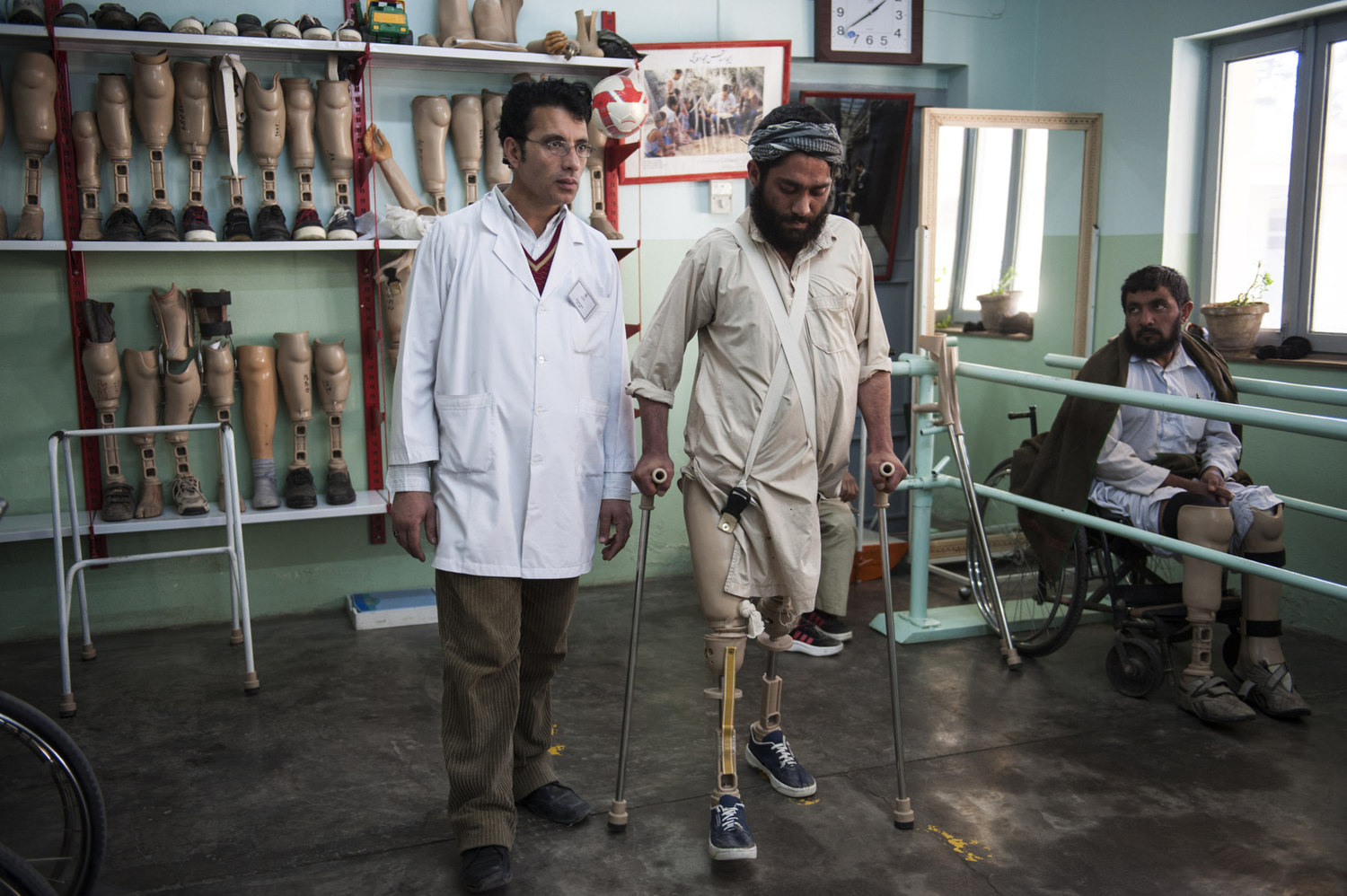
Osman Ali tests out his new prosthetic legs at the International Center for the Red Cross in Herat, Afghanistan. Osman lost both of his legs after stepping on a landmine in 2008 but can now walk for a short time.
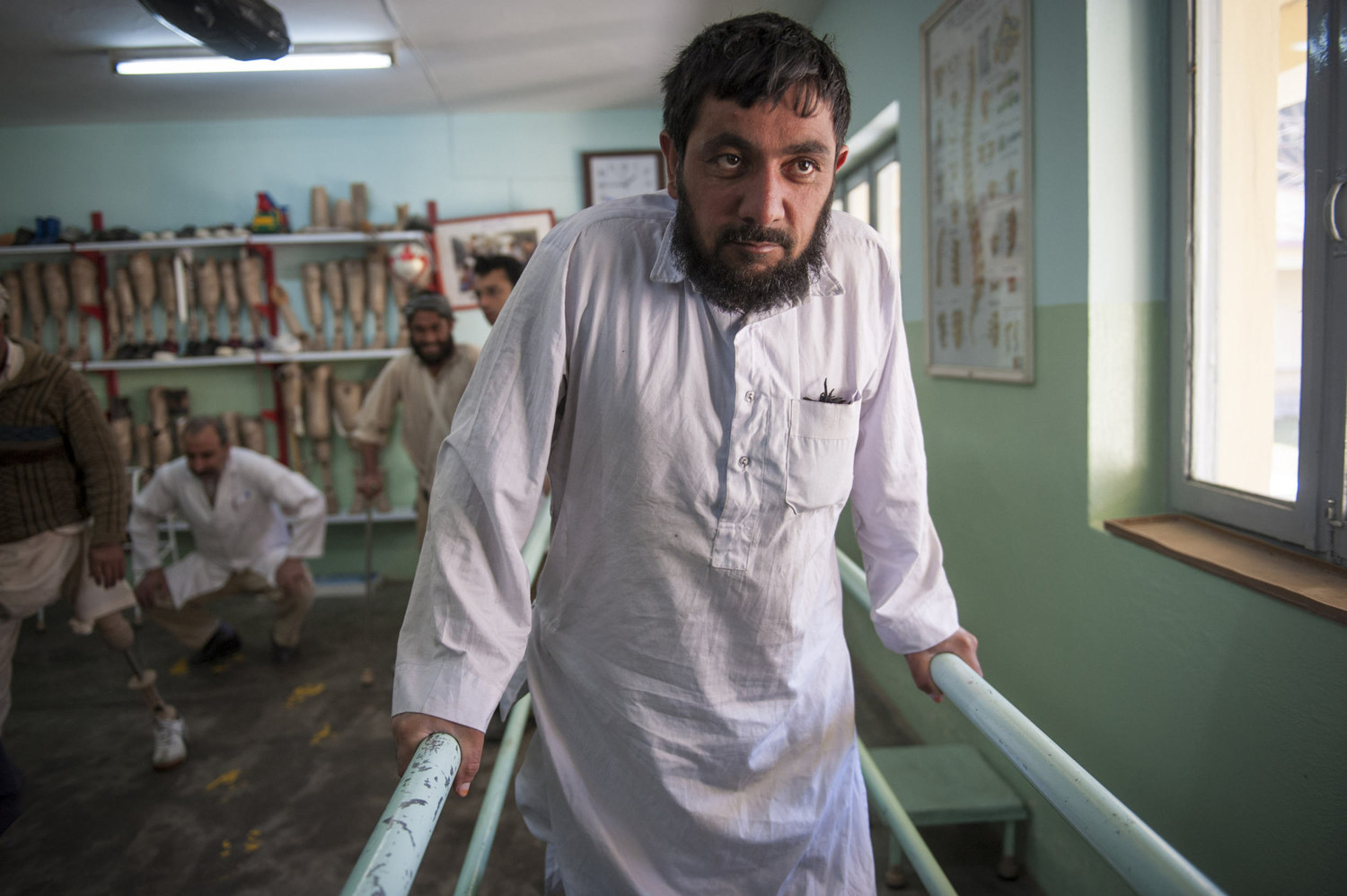
Gholom Rasol holds on to rails to assist him while walking at the International Center for the Red Cross in Herat, Afghanistan. Rasol, from Guzara outside of Herat, lost both of his legs in a what is believed to be a car bombing organized by the Taliban in 2006 and has just received his prosthesis's in 2008.
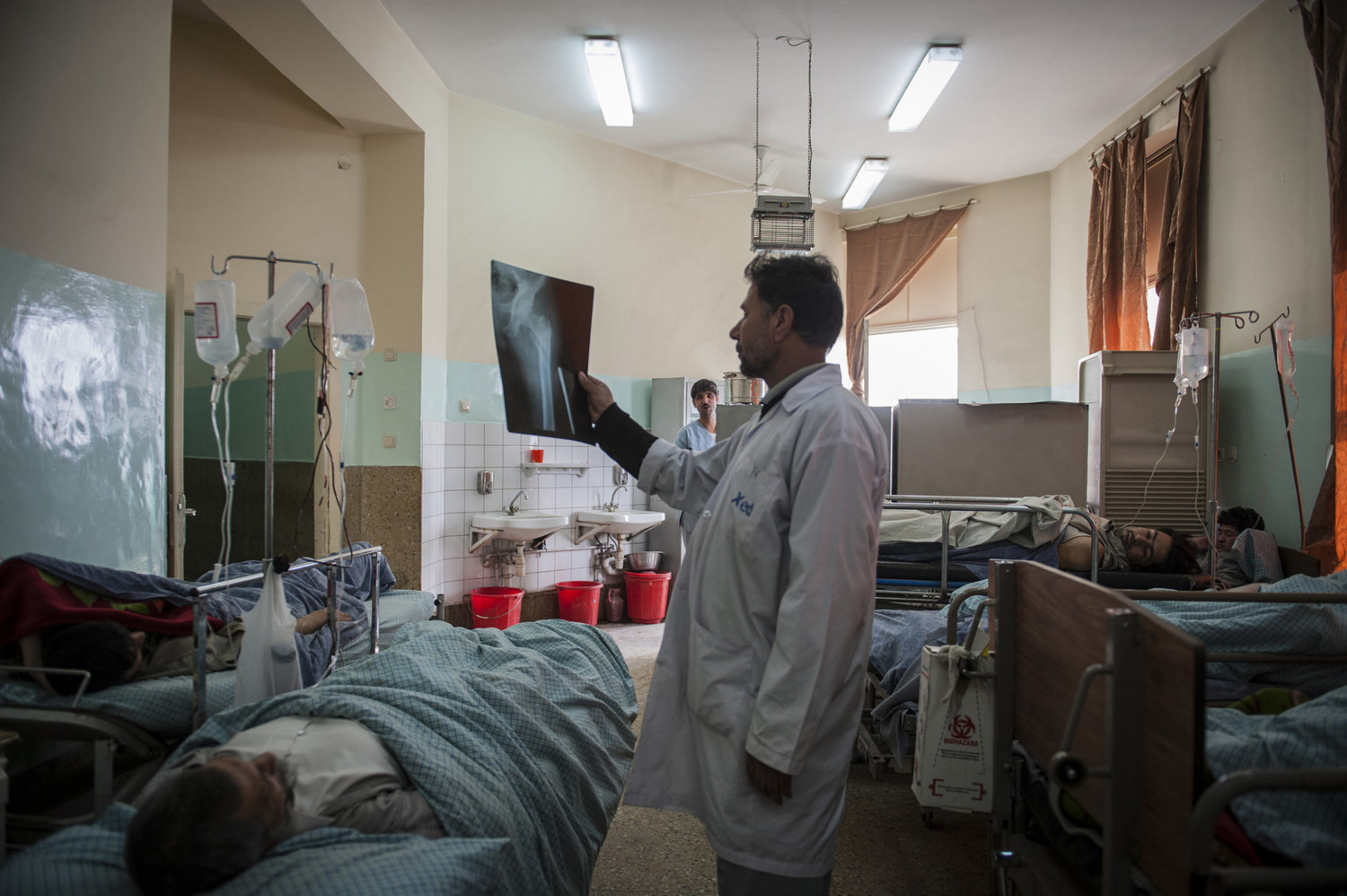
Dr.Younis examines a patients x-ray in the mens orthopedic ward at Wazir Akbar Khan Public Hospital in Kabul Afghanistan. Some hospital rooms hold up to 25 patients, using all available space. Many patients also rest in the hallway.

Patients with tuberculosis line up for corn rations donated by the World Food Program as an incentive to return to the treatment centure daily for treatment. The World Health organization in conjunction with the UN funds the Darliman TB clinic in Darliman, Kabul.

Young midwives wait for the next delivering woman at the Malali Women's Hospital in Kabul where 100-120 babies are born a day. Afghanistan, a country with an abnormally high infant mortality rate has 165 out of 1,000 infants deaths in 2006 has been fighting this statistic by encouraging women to come into hospitals to give birth rather than have home births.
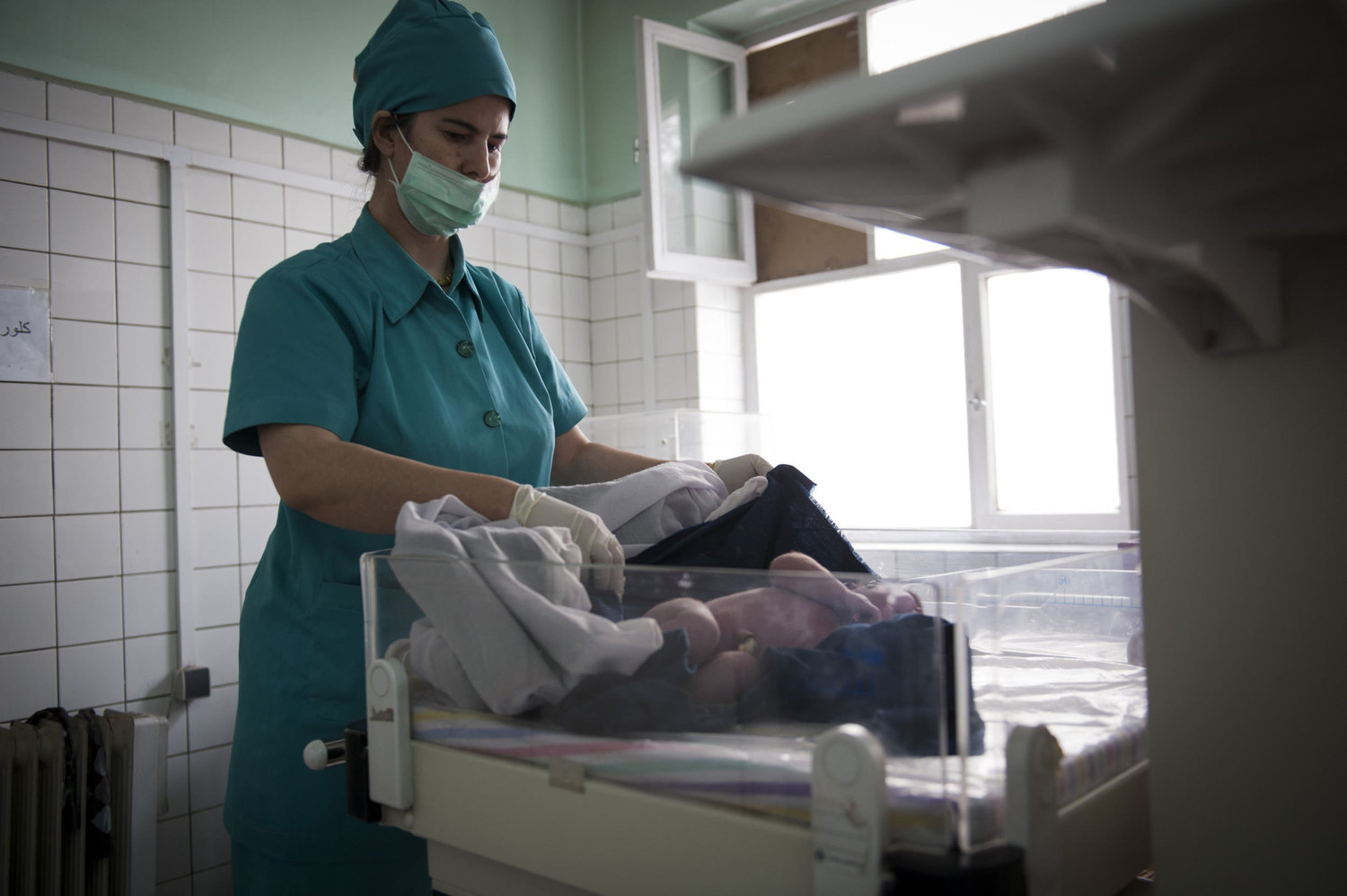
A birthing assistant wraps up a recently born baby. Midwives are being trained to deal with delivery complications, like this baby who breeched during the delivery but was delivered successfully.
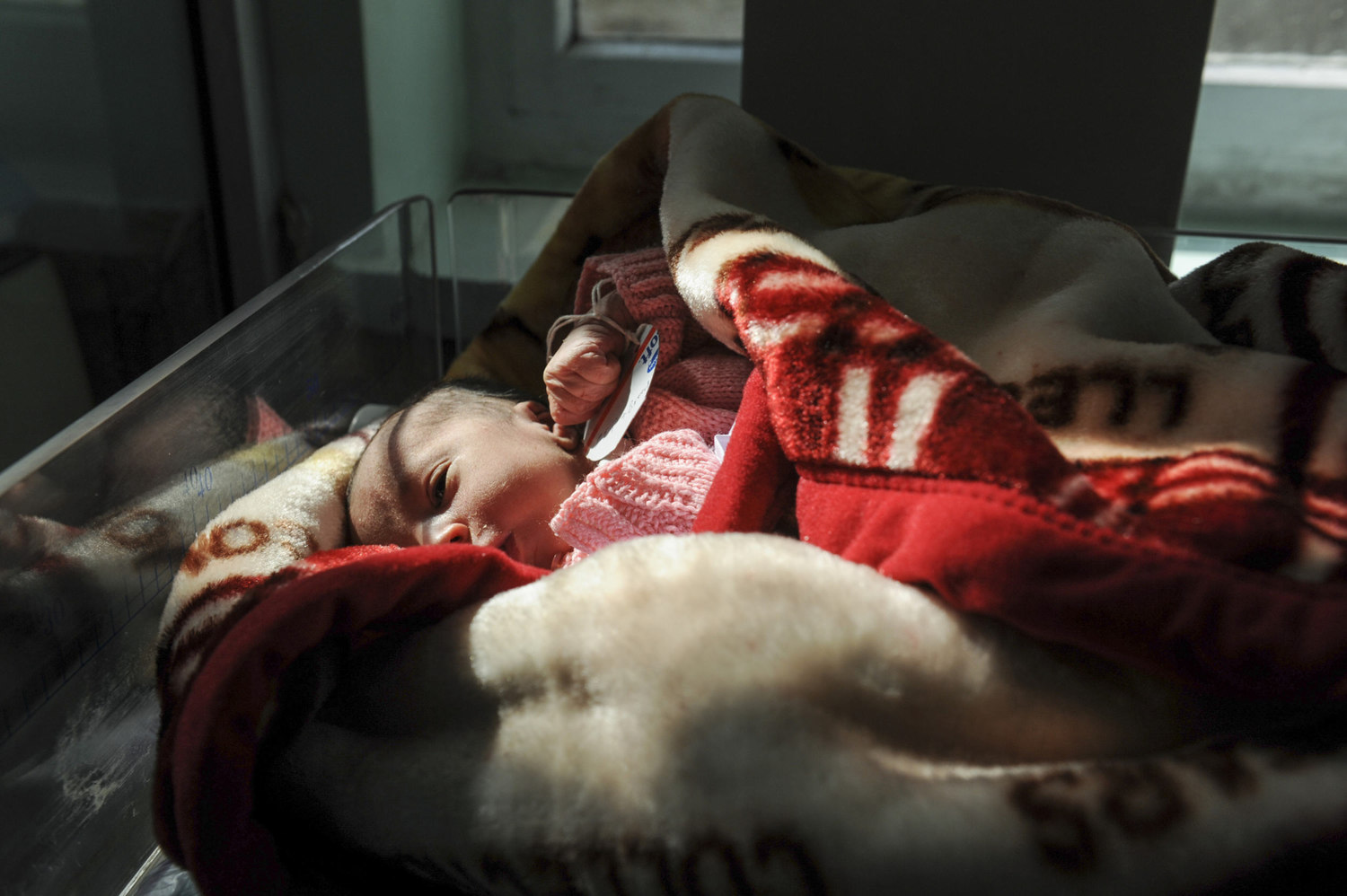
Under-Weight baby in the Natal Intensive Care Unit of Malali Womens Hospital in Kabul Afghanistan. At Malali Womens Hospital in Kabul where 100-120 babies are born a day.
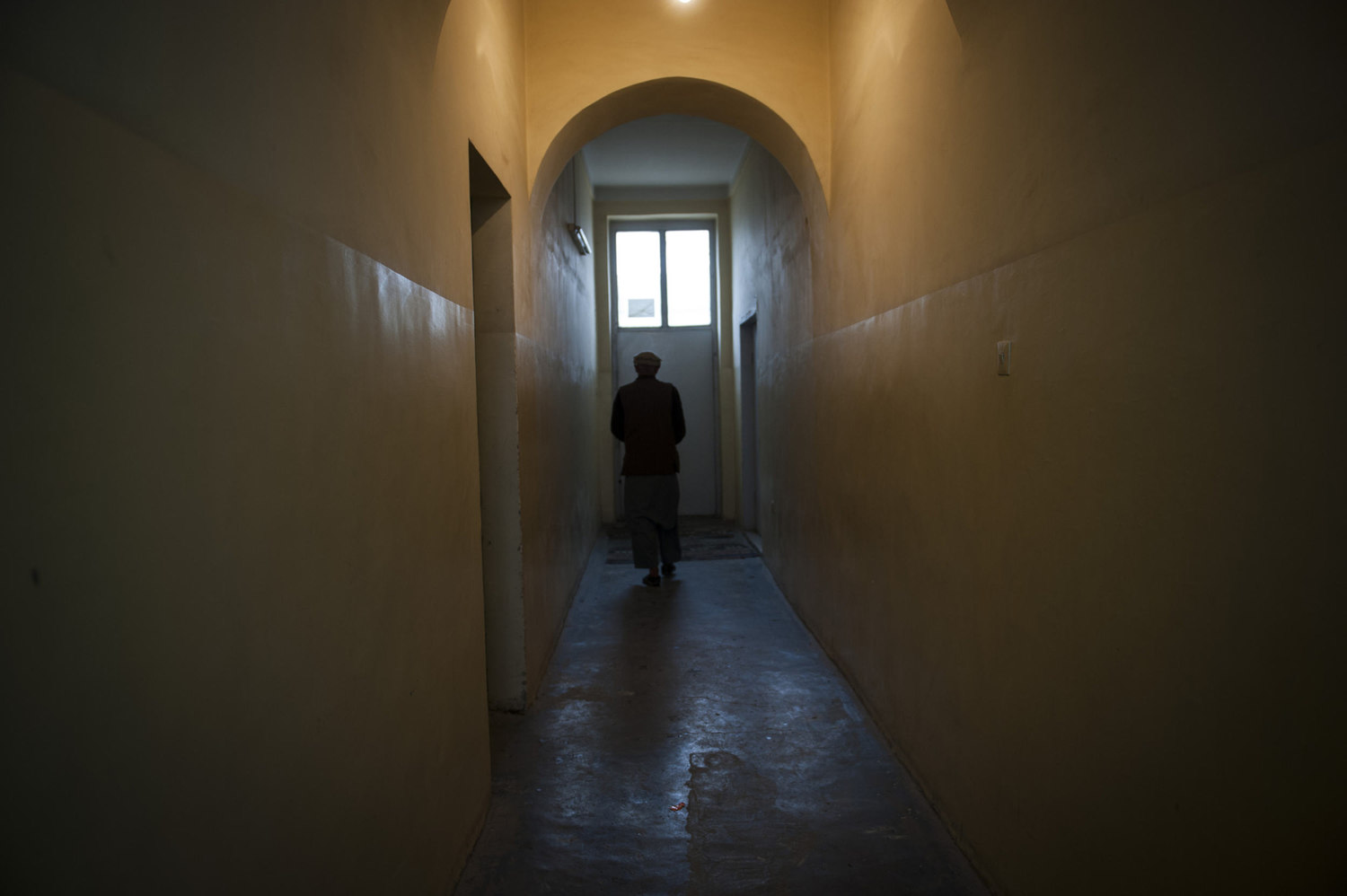
Patients at the Sahate Ravani Psychiatric Hospital in the Allhaudine section of Kabul.
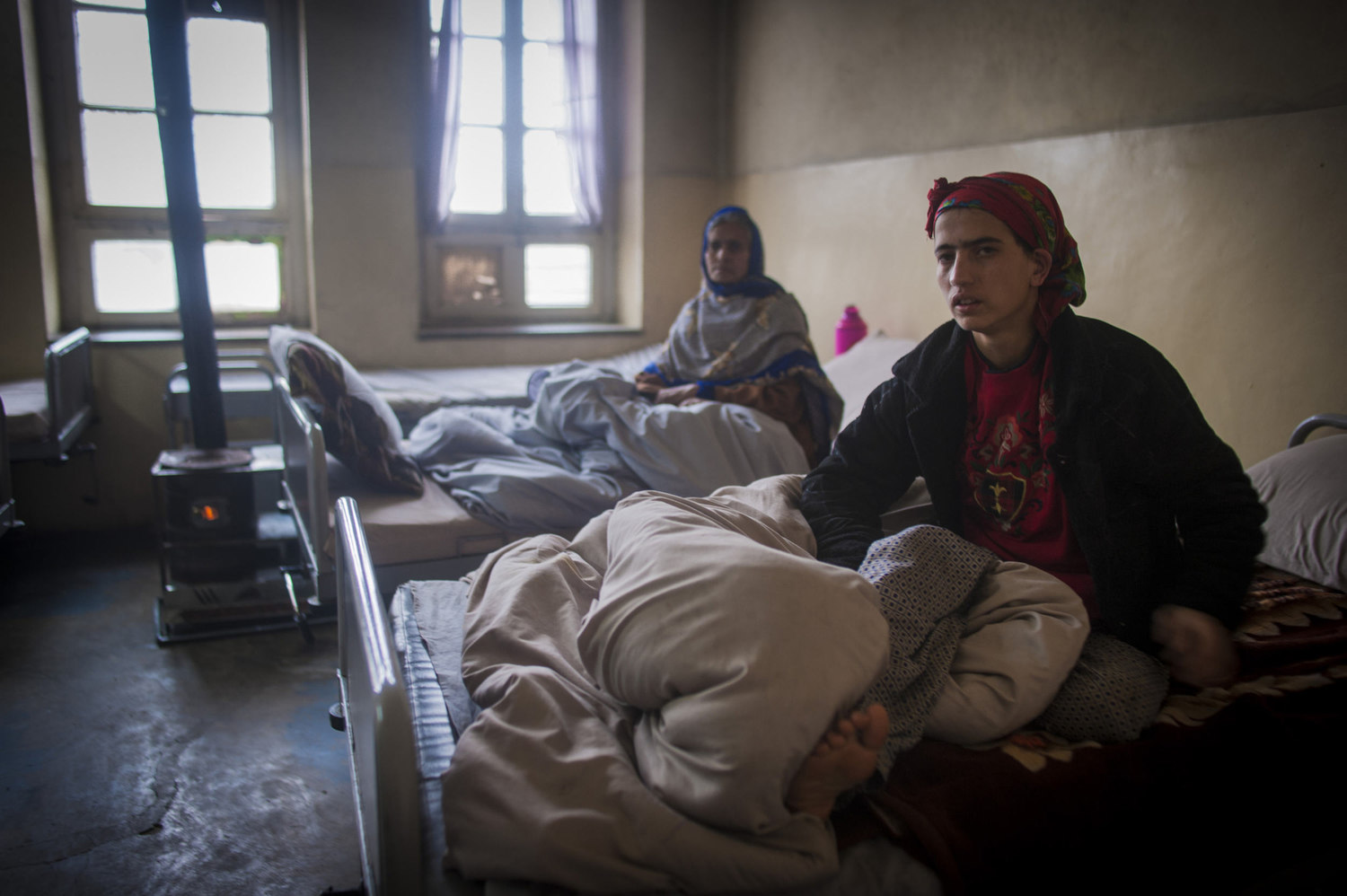
Mother and Daughter Sima and Shila. Shila, the daughter suffers from aggression and anger and also acts out unknowingly. Her mother states that her mind is weak, and she can not eat or drink but only cries.
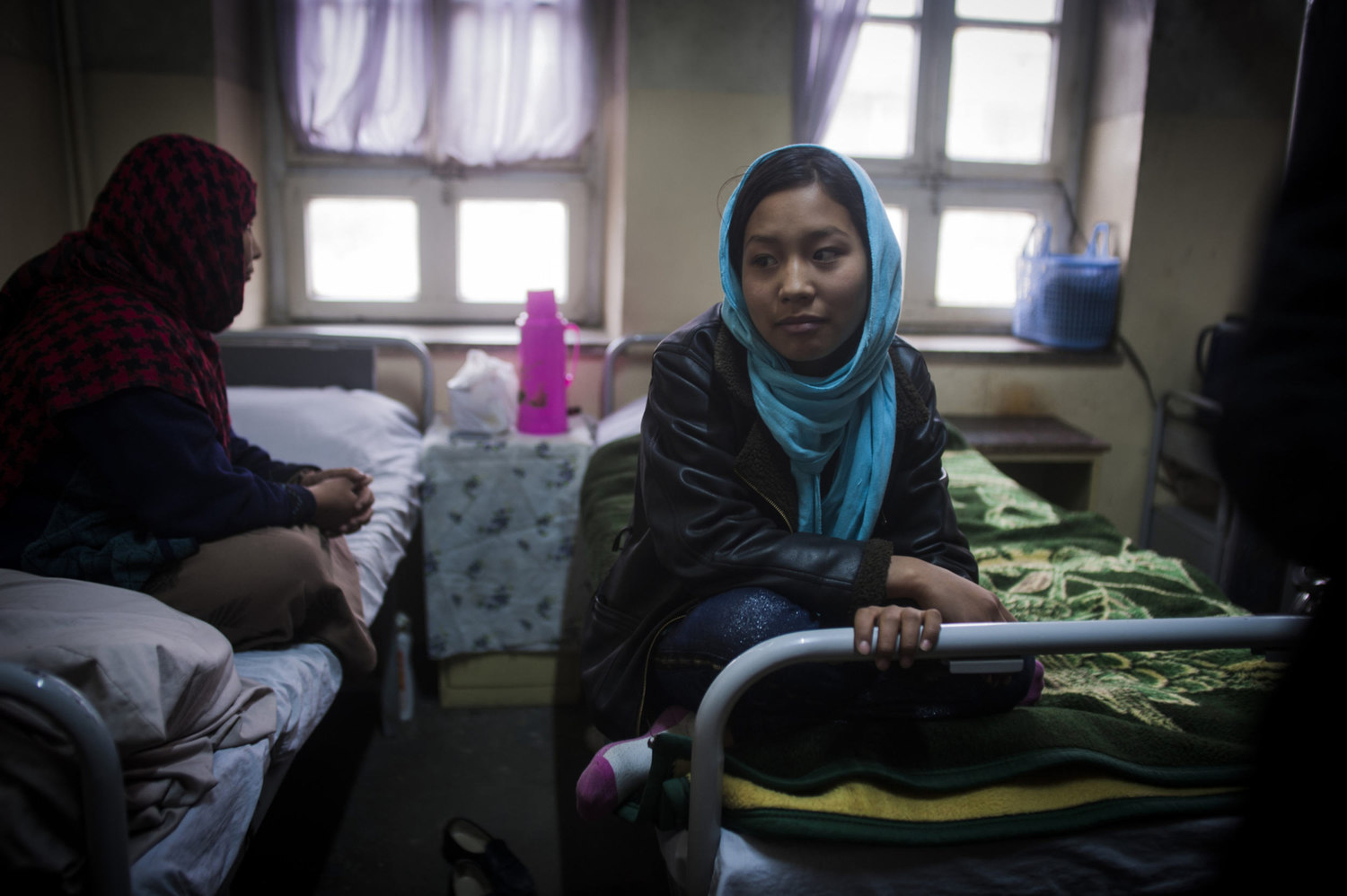
Fatima was brought here after being raped. Doctors note that she is under extreme stress. Her sister (on left) lives at the hospital to care for her. This is common in Afghanistan and most patients have a well relative residing with them 24 hours a day. Patients at the Sahate Ravani Psychiatric Hospital in the Allhaudine section of Kabul.
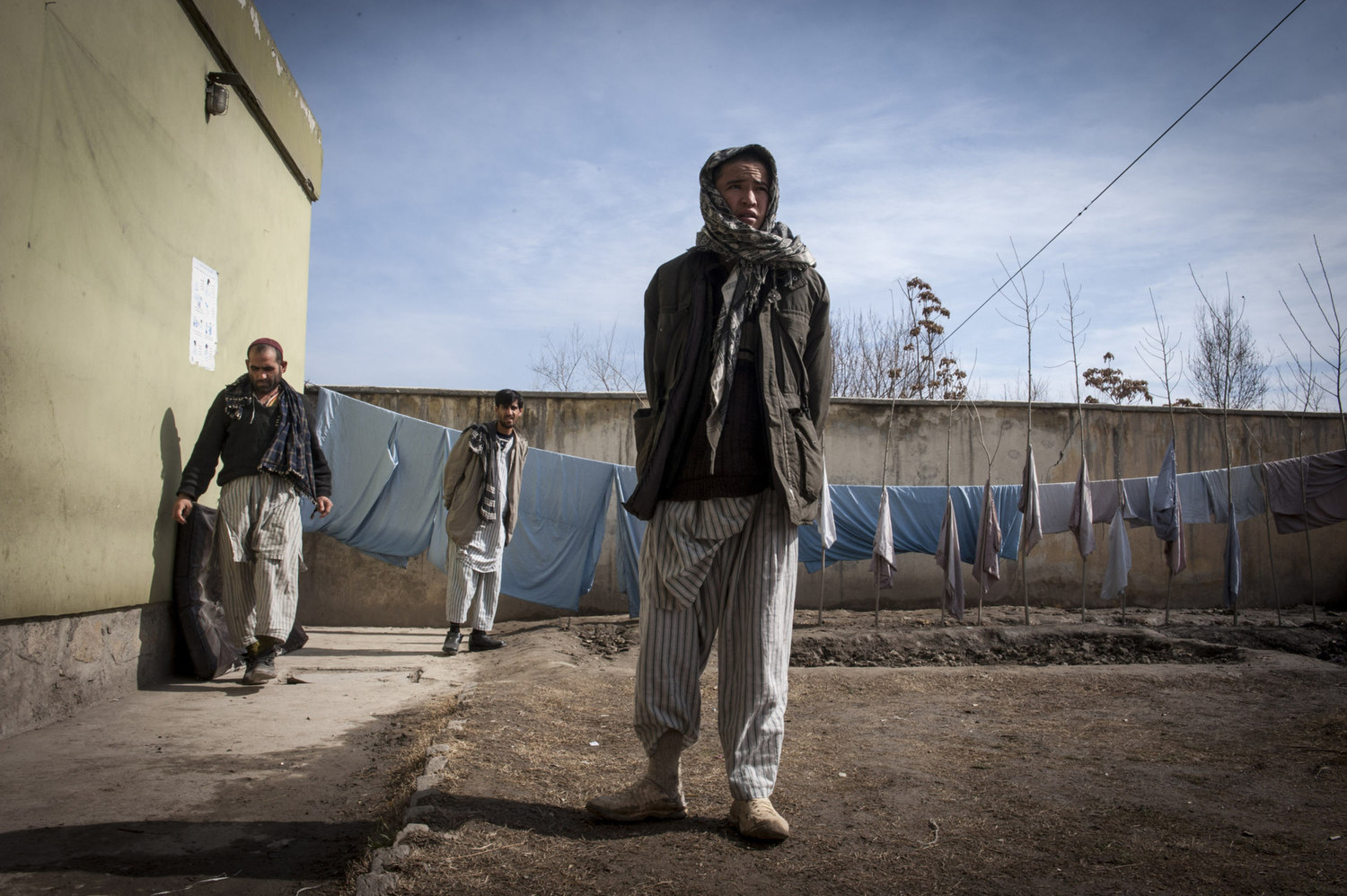
Sufta, a young man from Bamiyan has Undifferentiated Schizophrenia. he arrived here yesterday with his father. he has delusions of invaders and being taken away. He is 18 years old and frequently suffers from Panic Attacks, when asked he did not know what day it was.
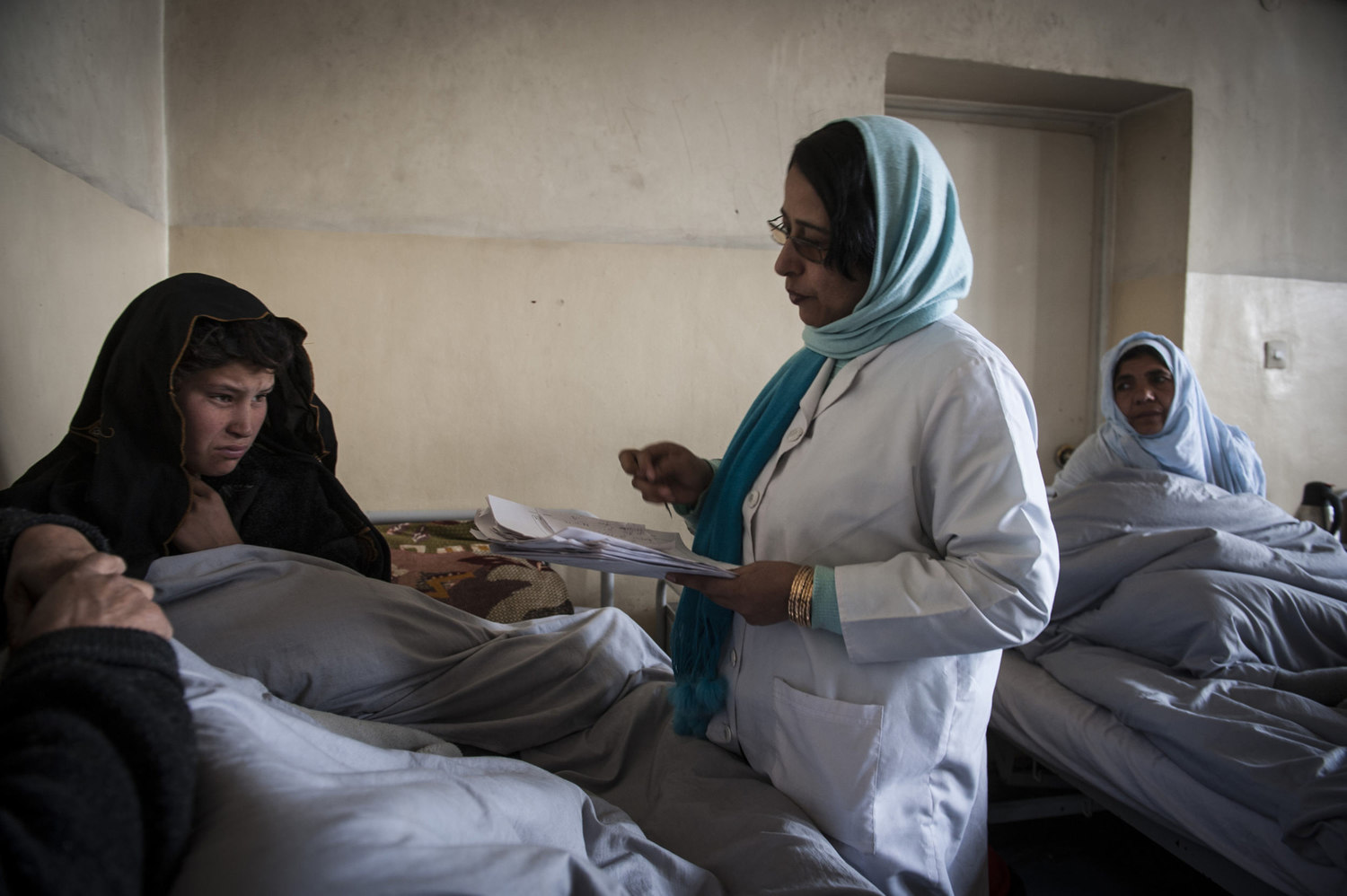
A patient is being questioned by a female doctor, but does not respond to questions. Her mother is to her right, it is believed that she suffers from a conversion disorder.
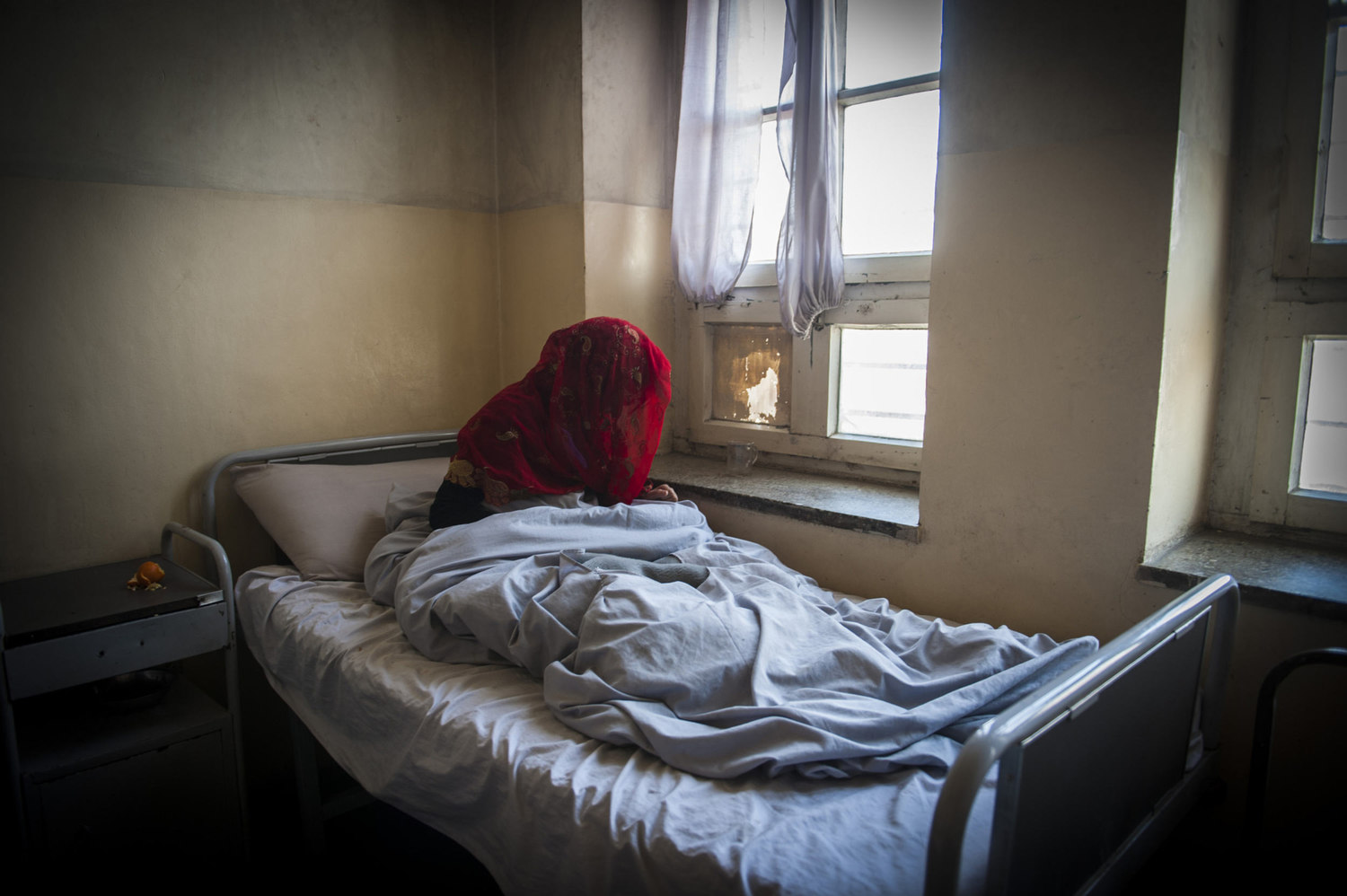
A catonic woman in the woman's ward
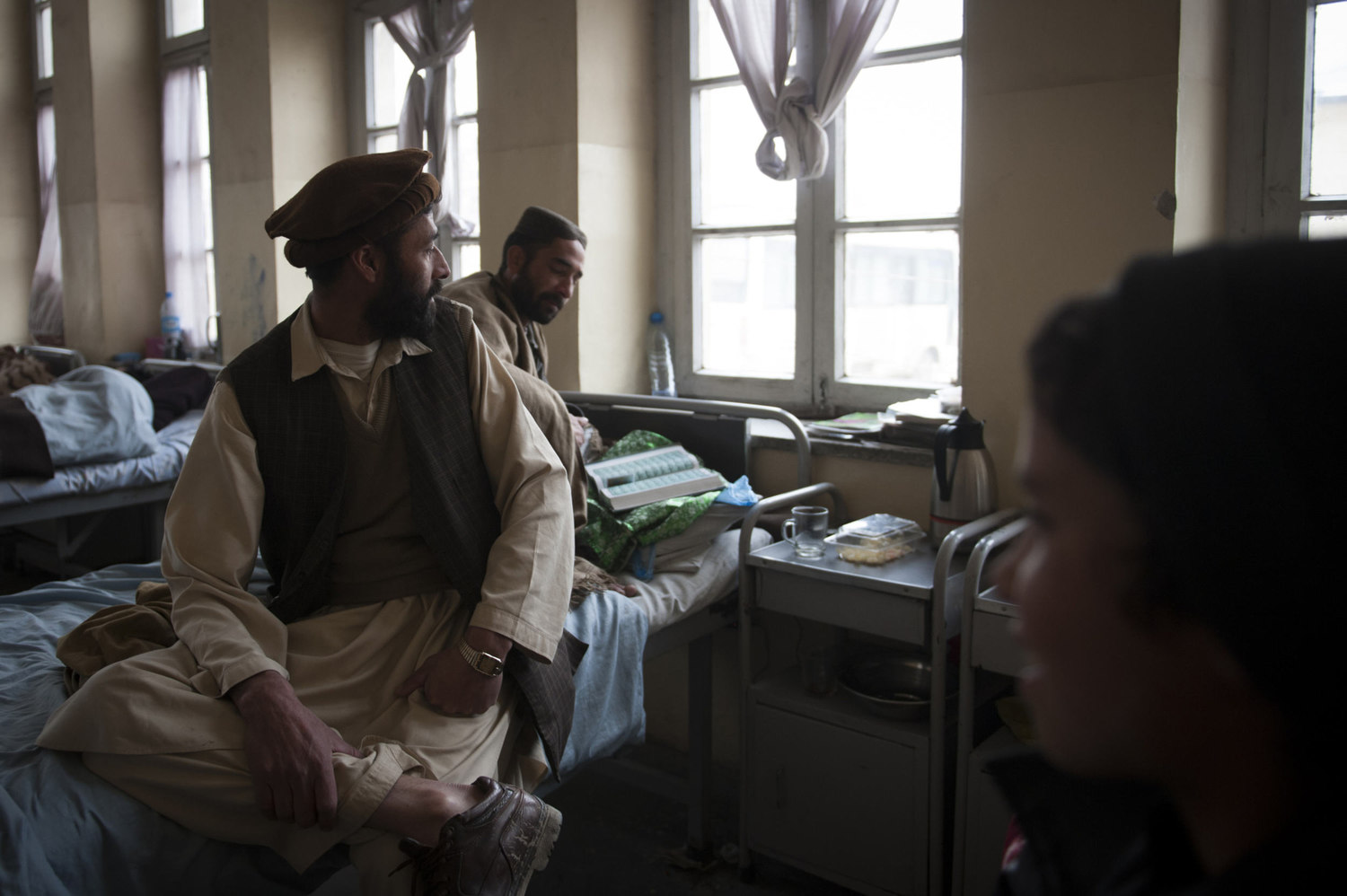
Patients at the Sahate Ravani Psychiatric Hospital in the Allhaudine section of Kabul.
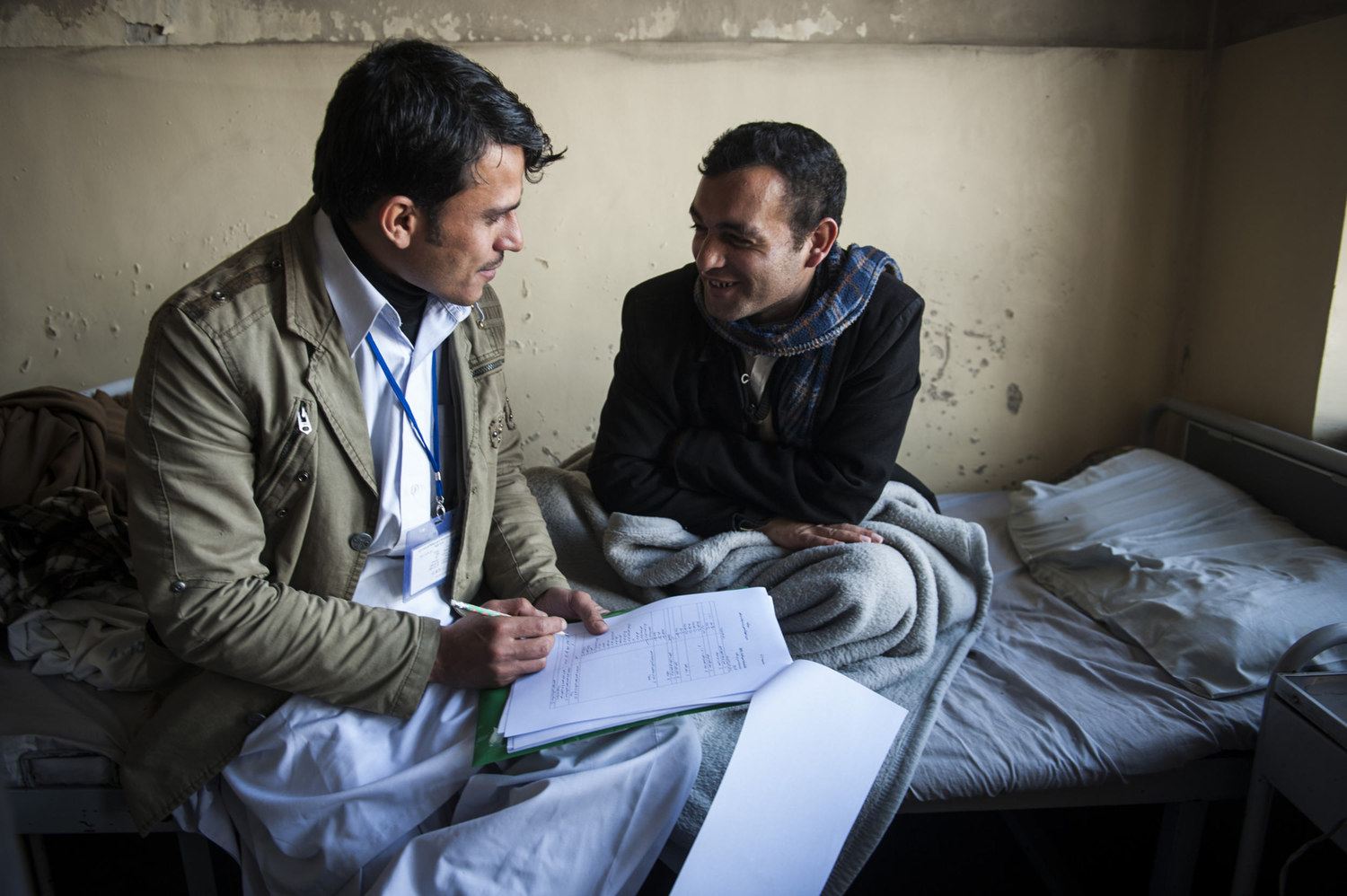
Safikola, A JICA worker at the Ministry of Public Health questions patients about the availability of mental care in their area, their condition, what type of meds is he/she is on and how long they are at the facility.
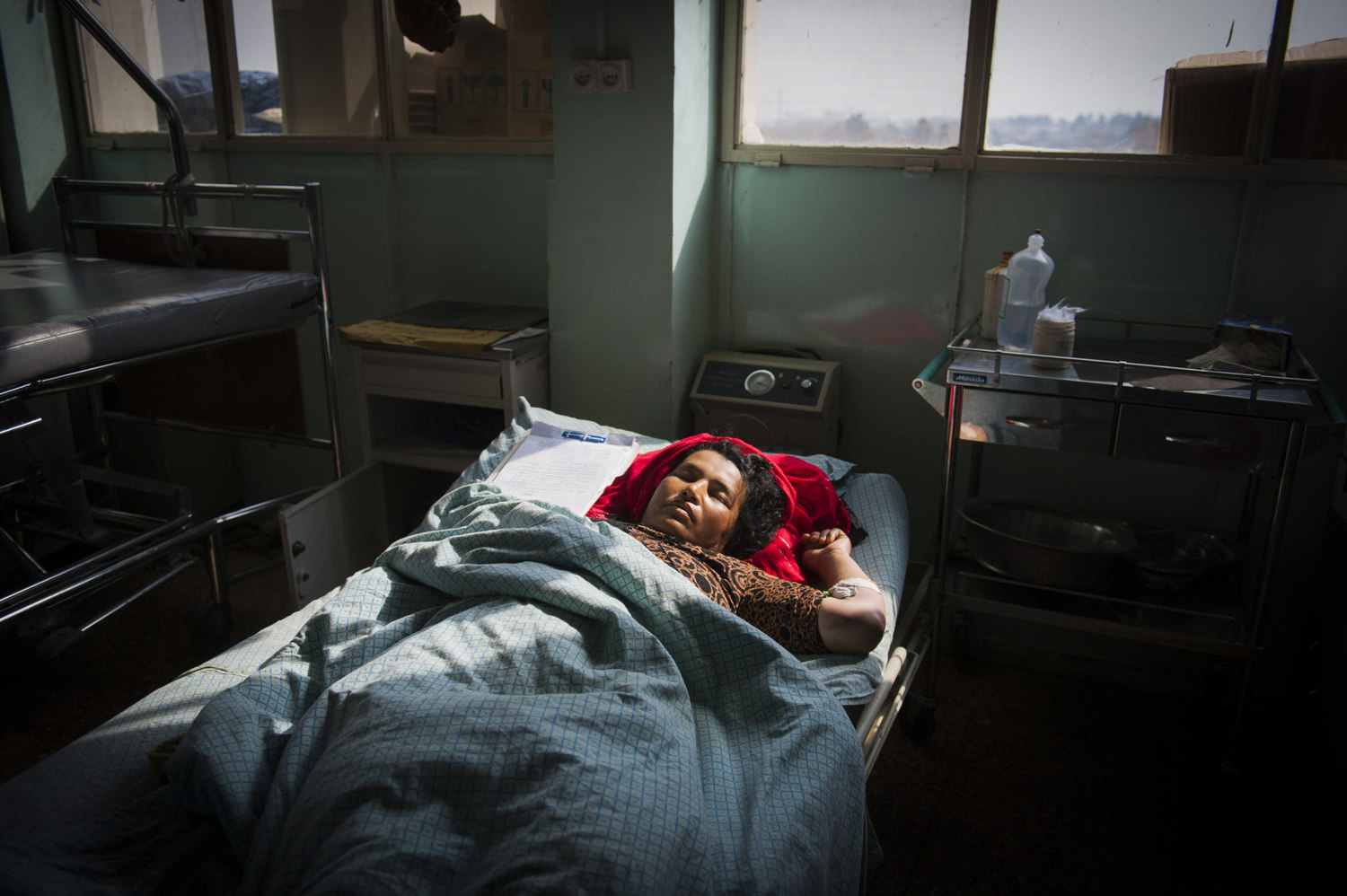
Nuraya rests in the Womens ICU of Wazir Akbahan hospital after a car accident. After five days she has yet to regain consciousness and has broken both her legs and arm. Non-fatal accidents in Afghanistan often lead to death due to inadequate medical care and sparse hospitals.

Mohammed Kabir rests in the Mens Ward of Wazir Akbar Khan Hospital in Kabul Afghanistan. Kabir suffered from a car accident several days ago and survived despite serious internal injury. He is being attended to by his brother who is also living in the hospital.
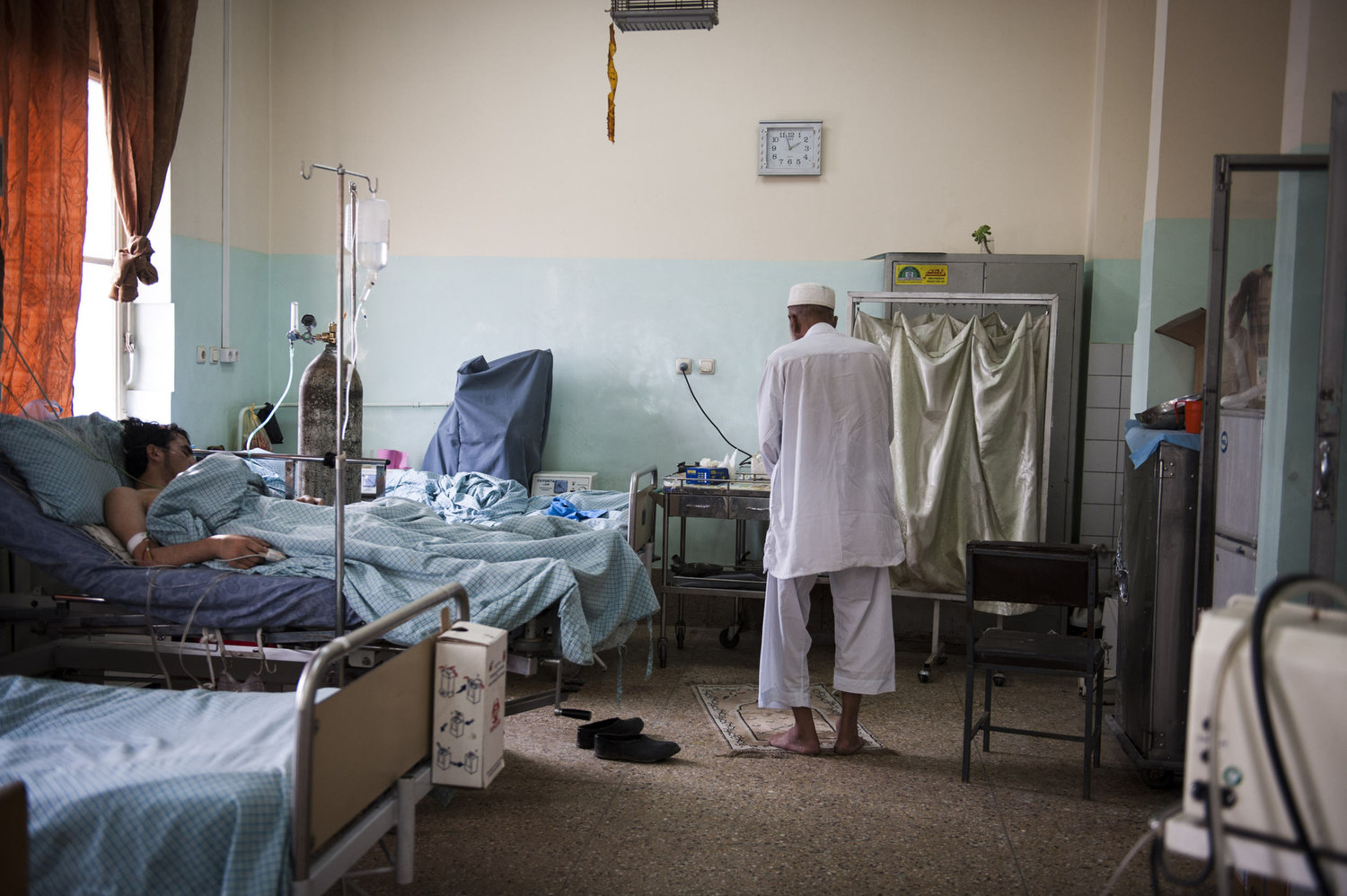
Haji Abdul Salam prays in the Mens ward of Wazir Akbar Khan Hospital. Salam recently had an operation to remove his liver stones. He traveled over 100 km from his home province of Logar, to Kabul which is the nearest hospital.



















Marzion, an inpatient at a women's tuberculosis clinic in Kartabarwan, Kabul looks out of the window she shares with many women. Marzion has been here for eight days-this is her second time in the clinic.
Osman Ali tests out his new prosthetic legs at the International Center for the Red Cross in Herat, Afghanistan. Osman lost both of his legs after stepping on a landmine in 2008 but can now walk for a short time.
Gholom Rasol holds on to rails to assist him while walking at the International Center for the Red Cross in Herat, Afghanistan. Rasol, from Guzara outside of Herat, lost both of his legs in a what is believed to be a car bombing organized by the Taliban in 2006 and has just received his prosthesis's in 2008.
Dr.Younis examines a patients x-ray in the mens orthopedic ward at Wazir Akbar Khan Public Hospital in Kabul Afghanistan. Some hospital rooms hold up to 25 patients, using all available space. Many patients also rest in the hallway.
Patients with tuberculosis line up for corn rations donated by the World Food Program as an incentive to return to the treatment centure daily for treatment. The World Health organization in conjunction with the UN funds the Darliman TB clinic in Darliman, Kabul.
Young midwives wait for the next delivering woman at the Malali Women's Hospital in Kabul where 100-120 babies are born a day. Afghanistan, a country with an abnormally high infant mortality rate has 165 out of 1,000 infants deaths in 2006 has been fighting this statistic by encouraging women to come into hospitals to give birth rather than have home births.
A birthing assistant wraps up a recently born baby. Midwives are being trained to deal with delivery complications, like this baby who breeched during the delivery but was delivered successfully.
Under-Weight baby in the Natal Intensive Care Unit of Malali Womens Hospital in Kabul Afghanistan. At Malali Womens Hospital in Kabul where 100-120 babies are born a day.
Patients at the Sahate Ravani Psychiatric Hospital in the Allhaudine section of Kabul.
Mother and Daughter Sima and Shila. Shila, the daughter suffers from aggression and anger and also acts out unknowingly. Her mother states that her mind is weak, and she can not eat or drink but only cries.
Fatima was brought here after being raped. Doctors note that she is under extreme stress. Her sister (on left) lives at the hospital to care for her. This is common in Afghanistan and most patients have a well relative residing with them 24 hours a day. Patients at the Sahate Ravani Psychiatric Hospital in the Allhaudine section of Kabul.
Sufta, a young man from Bamiyan has Undifferentiated Schizophrenia. he arrived here yesterday with his father. he has delusions of invaders and being taken away. He is 18 years old and frequently suffers from Panic Attacks, when asked he did not know what day it was.
A patient is being questioned by a female doctor, but does not respond to questions. Her mother is to her right, it is believed that she suffers from a conversion disorder.
A catonic woman in the woman's ward
Patients at the Sahate Ravani Psychiatric Hospital in the Allhaudine section of Kabul.
Safikola, A JICA worker at the Ministry of Public Health questions patients about the availability of mental care in their area, their condition, what type of meds is he/she is on and how long they are at the facility.
Nuraya rests in the Womens ICU of Wazir Akbahan hospital after a car accident. After five days she has yet to regain consciousness and has broken both her legs and arm. Non-fatal accidents in Afghanistan often lead to death due to inadequate medical care and sparse hospitals.
Mohammed Kabir rests in the Mens Ward of Wazir Akbar Khan Hospital in Kabul Afghanistan. Kabir suffered from a car accident several days ago and survived despite serious internal injury. He is being attended to by his brother who is also living in the hospital.
Haji Abdul Salam prays in the Mens ward of Wazir Akbar Khan Hospital. Salam recently had an operation to remove his liver stones. He traveled over 100 km from his home province of Logar, to Kabul which is the nearest hospital.